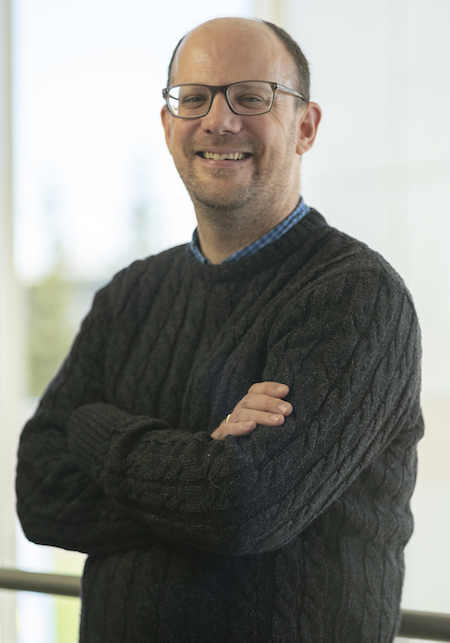
Peter was elected to the ARCUS Board of Directors in 2019, he fills a term that expires in 2020.
Peter works at the Geophysical Institute (GI), University of Alaska Fairbanks (UAF). He is the Associate Director of Research at the Alaska Center for Unmanned Aircraft Systems Integration (ACUASI), an Associate Research Professor of Remote Sensing, and a Faculty Ambassador to UAF's Office of Intellectual Property and Commercialization (OIPC). Peter has a passion for business development and technology transfer from an academic environment into the private sector. Dr. Webley's impact on the innovation practices and entrepreneurial activities at UAF has been important for the University's growth. Peter is also a State of Alaska Innovators Hall of Fame (HOF) inductee, class of 2017, and is one of five at UAF who hold a patent and are an HOF inductee. He supports and advises UAF's innovators and entrepreneurs along with their Office on providing resources, programs and initiatives to build an innovative culture at UAF. This led him to become the Vice President of V-ADAPT (Volcanic Ash Detection, Preparedness for Transportation), a start-up company out of UAF. They provide real-time decision support tools, consultancy services to evaluate potential ash impact on day-to-day operations and advise on how to analyze remote sensing data for real-time hazard assessment.
Peter has Bachelor of Science (BSc, Hons): Geophysical Sciences and Masters of Science (MSc): Atmospheric Sciences degrees, both from the University of East Anglia (UEA), UK. In 2003, he earned his doctoral degree (PhD) in Remote Sensing of Volcanoes from the University of Reading, UK and in 2005 moved to Alaska as a Post-doctoral researcher focused on volcanic eruptions and hazard analysis. He became a UAF Faculty member in 2009, and has since transitioned to Associate Research Professor. From 2008–2013, Peter worked at the Alaska Volcano Observatory (AVO) in its remote sensing team where he often worked as the Duty Remote Sensing Scientist with 24/7 on-call responsibilities to provide advice and observations of changes in volcanic activity. From 2008 to 2013, Peter was the Americas and Caribbean representative for the World Organization of Volcano Observatories (WOVO)and recently (2018) joined the leadership team for the American Geophysical Unions Art and Science Community.
Peter's research interests include volcanic ash cloud modeling, use of unmanned aircraft systems for geoscience applications, connecting emergency managers with real-time remote sensing data, developing decision support tools, real-time monitoring of volcanic activity, and remote sensing of volcanic processes. His aim is to provide tools and products for hazard assessment and risk mitigation. Peter sees that navigating, monitoring, and observing of the new Arctic are critical components of current and future Arctic science. Remote sensing data provides an ideal tool to map the Arctic landscape to detect and track natural hazards that can affect local infrastructure and population centers. Peter is privileged to serve within ARCUS as a board of director and sees that ARCUS plays an important role in bringing together scientists from across the Arctic to advance our understanding of the region and the need for transdisciplinary research that builds on the capacity and capabilities of all those living and working in the circumpolar north.
